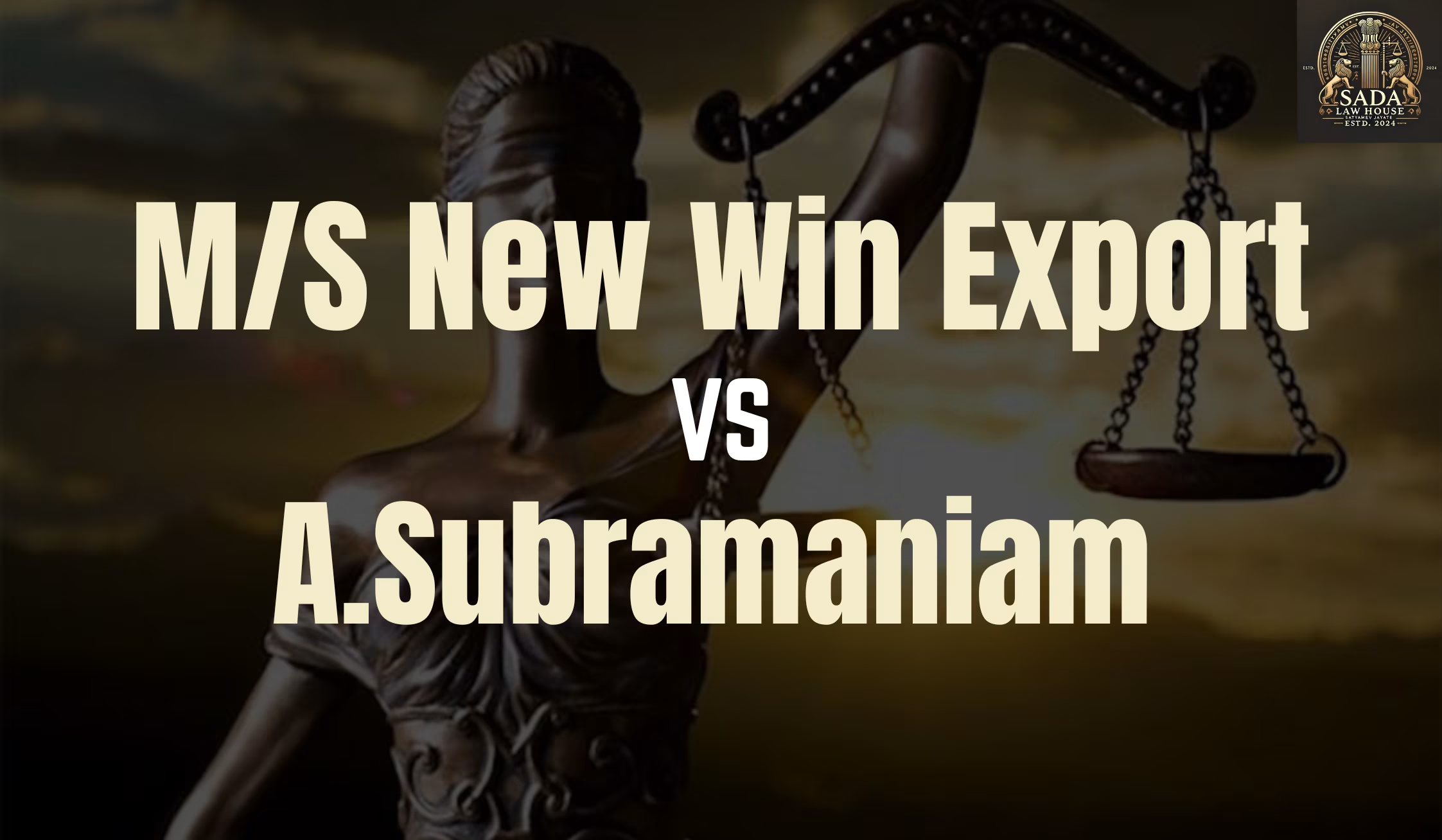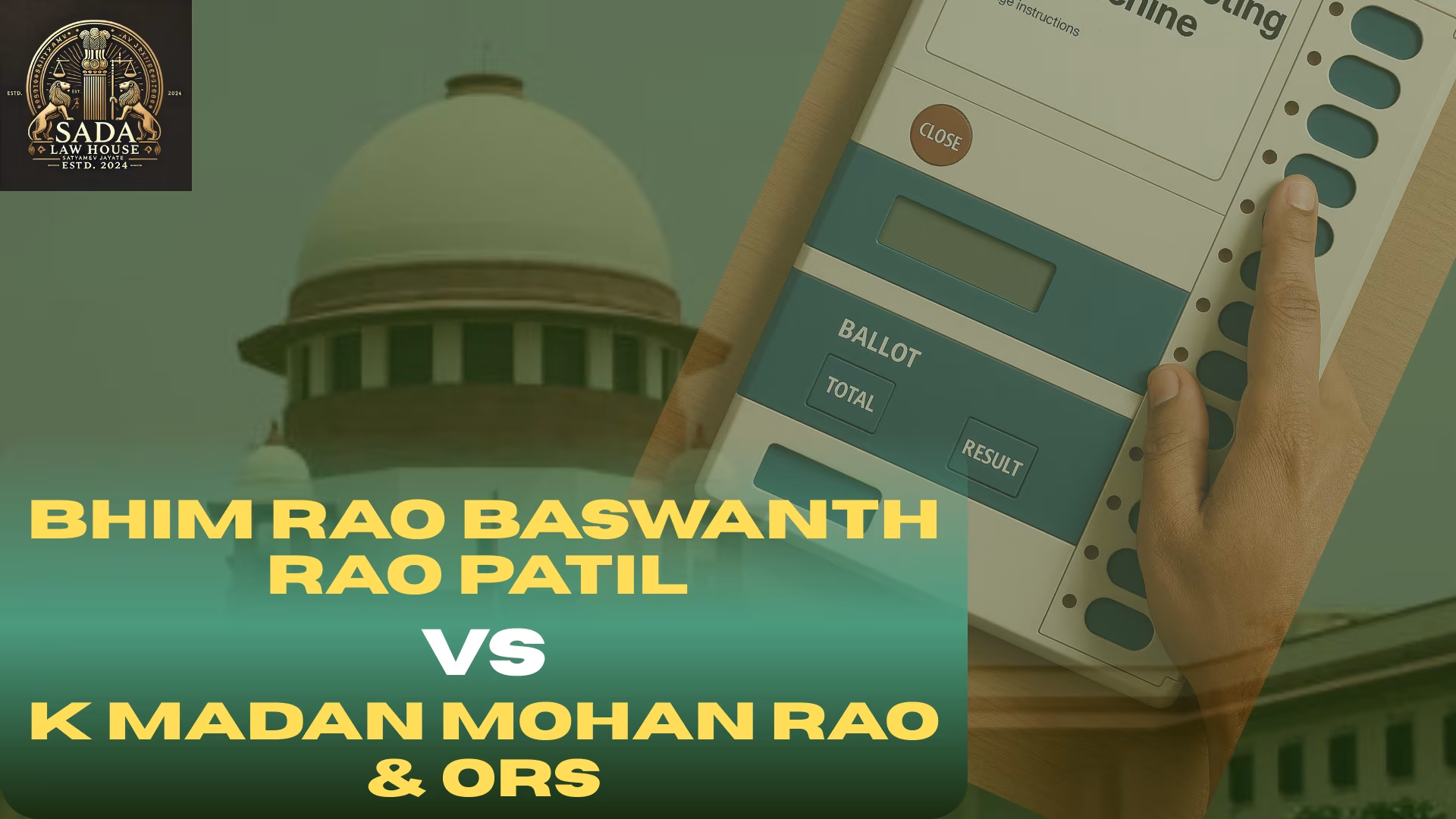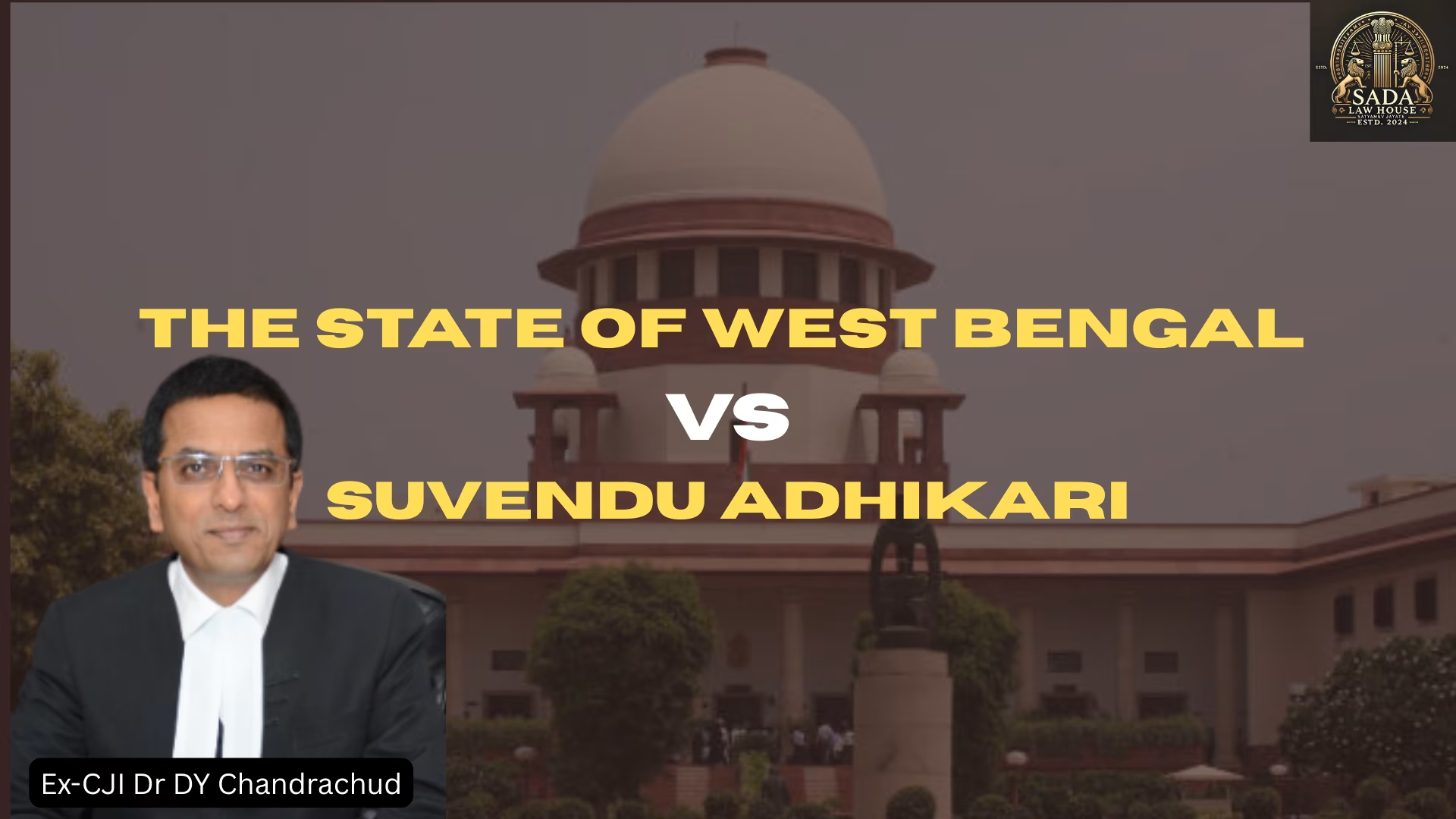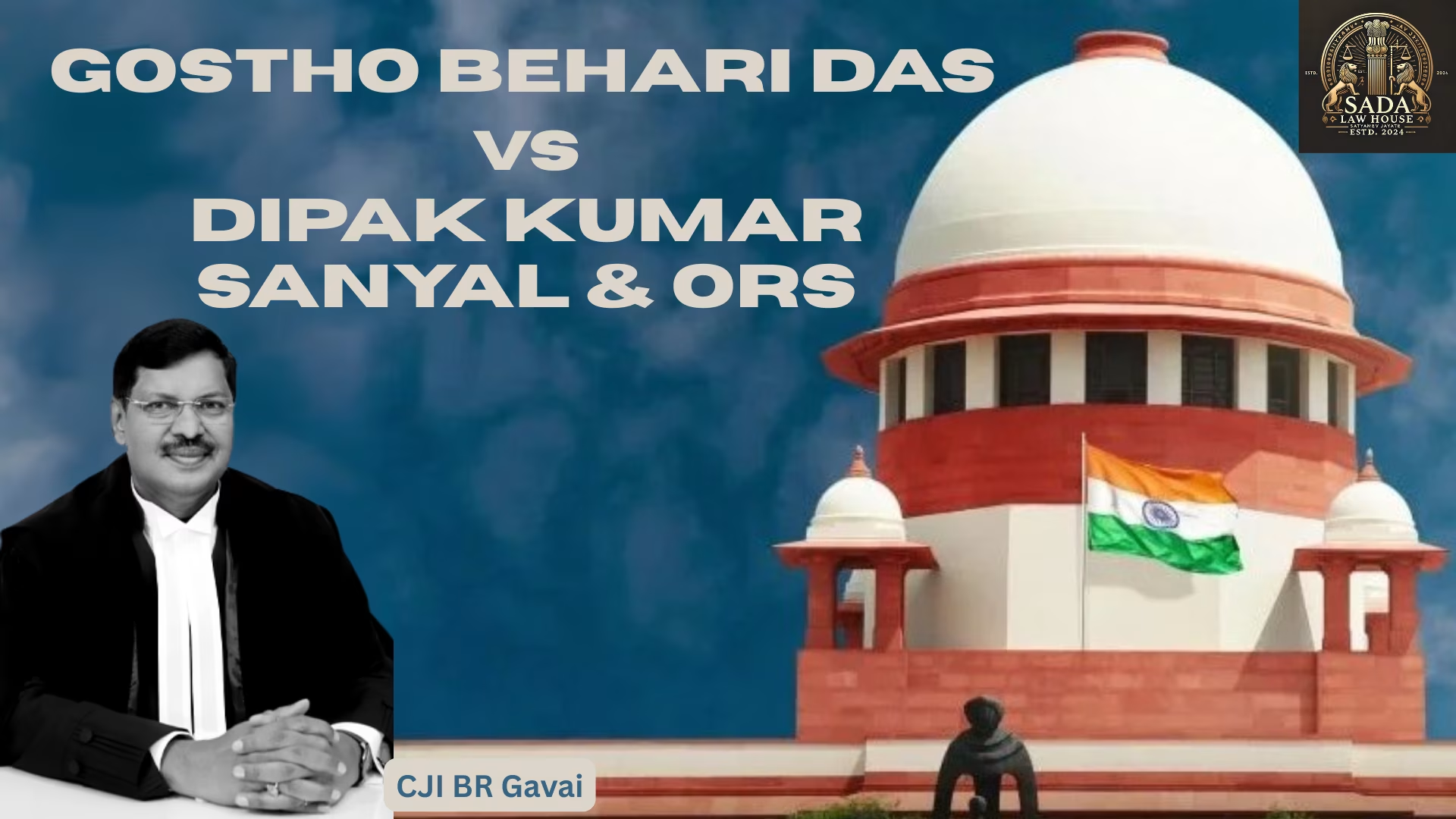Supreme Court Urges Compounding in Cheque Bounce Cases: M/S New Win Export vs A. Subramaniam (2024)
- NITU KUMARI
- 25 May 2025

In the 2024 judgment of M/S New Win Export vs A. Subramaniam, the Supreme Court of India emphasized the importance of compounding in cheque bounce cases under Section 138 of the Negotiable Instruments Act. Learn how this decision impacts future legal proceedings and debt recovery.
Introduction: A Landmark Ruling on Cheque Dishonour under NI Act
On July 11, 2024, the Supreme Court of India delivered a significant verdict in the case M/S New Win Export & Anr. vs A. Subramaniam, shedding light on the issue of cheque bounce cases under Section 138 of the Negotiable Instruments Act, 1881. The Court stressed the importance of encouraging compounding of offences, especially when parties are willing to settle disputes amicably.
Case Background: Loan, Cheque Bounce, and Legal Proceedings
Facts of the Case
In 2006, a financial transaction occurred where Appellant No. 2 borrowed ₹5,25,000 from the Respondent.
A cheque issued by Appellant No. 1 (a partnership firm) was dishonoured due to insufficient funds.
The Respondent filed a complaint under Section 138 of the NI Act, leading to the conviction of the appellants by the Trial Court.
The Appellate Court overturned the conviction, but the High Court later reinstated it.
After reaching a post-conviction settlement, the appellants approached the Supreme Court seeking to quash the conviction.
Legal Issues Before the Court
Can a post-conviction settlement nullify a conviction under Section 138 of the NI Act?
What is the legal framework for compounding offences under the Negotiable Instruments Act and the Code of Criminal Procedure?
Supreme Court Judgment: Encouraging Compounding of Offences
Key Findings
The Supreme Court reiterated that cheque dishonour is a regulatory offence aimed at maintaining trust in financial transactions.
It emphasized that courts should prioritize compensatory remedies over punitive measures in cheque bounce cases.
In line with Section 147 of the NI Act, the Court accepted the out-of-court settlement as valid compounding and set aside the conviction.
Legal Precedent Referenced
The Court referred to Raj Reddy Kallem v. The State of Haryana & Anr. [2024] 5 S.C.R 203, where it had previously invoked Article 142 of the Constitution of India to quash a conviction despite the complainant’s resistance to settlement.
Legal Principles Highlighted
Ratio Decidendi
A valid settlement qualifies as compounding under Section 147 NI Act, rendering continued conviction unnecessary.
Obiter Dicta
The Court underscored that compensatory justice should take precedence over punishment in cheque dishonour cases.
Guiding Rules
Courts should actively encourage compounding, especially during appellate proceedings, to reduce the backlog of cheque bounce cases.
The legitimacy of the settlement should be verified before granting relief.
Conclusion: Shaping the Future of Cheque Bounce Litigation
This judgment serves as a crucial precedent in cheque bounce litigation. By promoting amicable settlements and compounding, the Supreme Court of India is steering the legal system toward efficient and restorative justice. This is especially significant given the growing number of cases under Section 138 of the Negotiable Instruments Act clogging the judicial system.
Key Takeaways for Legal Practitioners and Businesses
Always explore settlement options in cheque dishonour disputes.
Courts may quash convictions post-settlement, aligning with the principles of justice and practicality.
Compounding of offences can significantly reduce legal burdens and promote faster dispute resolution.
Case Laws






